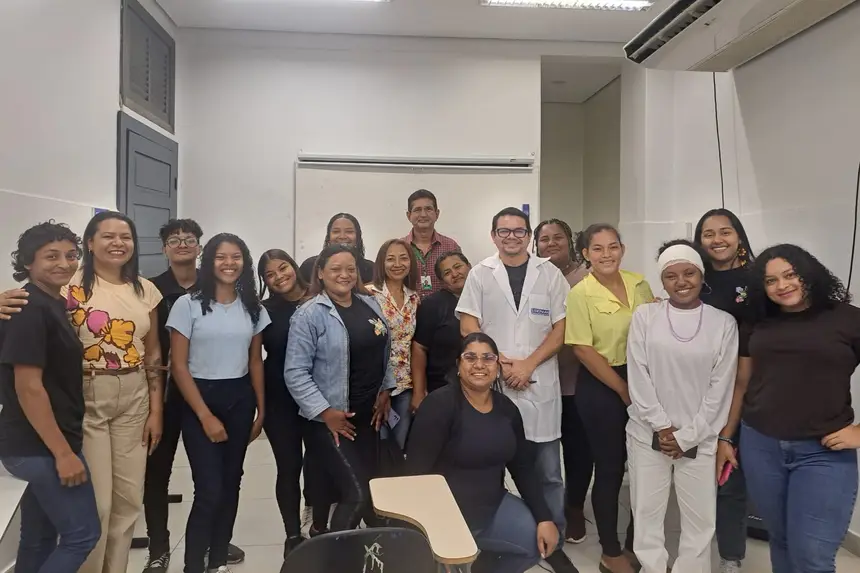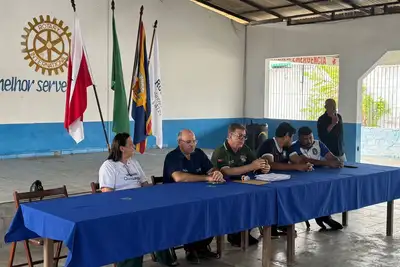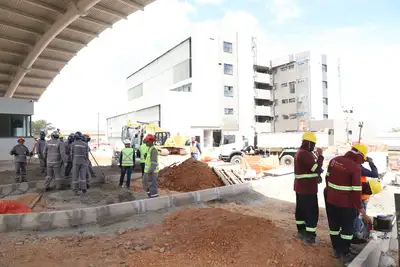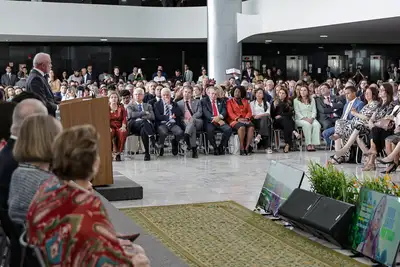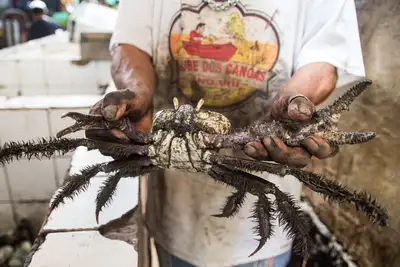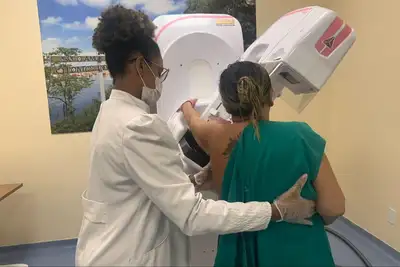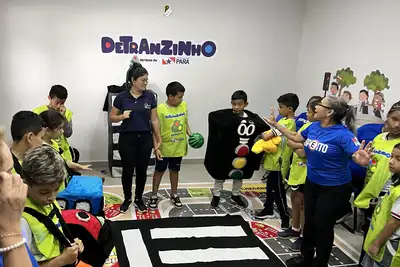Emater addresses technical assistance for traditional peoples of African matrices and terreiros
The Technical Assistance and Rural Extension Company of Pará (Emater) presented public policies in favor of agriculture and fishing activities
In total, quilombola women from the Metropolitan Region of Belém (RMB) and municipalities in northeastern Pará were invited by the Belém office of the Technical Assistance and Rural Extension Company of Pará (Emater) and the National Service for Industrial Learning (Senai) to discuss the public policies that the Government of Pará develops in temples of African descent, such as candomblé, umbanda, and tambor de mina, and in remaining quilombo communities. The event took place on Wednesday (10).
The conversation circle "Technical Assistance and Rural Extension (Ater) for Traditional Peoples of African Matrices and Terreiros (Potma)", led by Emater agronomist Jader Moura, a specialist in Public Management and Agribusiness and a master in Agricultural Sciences, was part of the pedagogical program of the Environmental Assistant course at Senai. Fourteen students from Ananindeua, Moju, and Ourém - all religious practitioners - participated.
"Emater's current action in support of Potma is a broad range of opportunities that encompass the valorization and strengthening of traditions, combating racism, social inclusion, food security, and opening sustainable markets," summarizes Moura.
One of the innovative contexts promoted internally and externally by Emater since 2022 is the Policy for Diffuse and Collective Rights (PICD). The farmer and geoprocessing technologist Edinalva Cardoso, 32, an umbandista, resident of the Abacatal Community in Ananindeua, and a regular attendee at the Casa de Rosa Malandra in the same municipality, stated that she gained new information at the event.
"Emater presented many relevant issues, such as the obligation to adjust territories and spaces to environmental legislation, and how the CAR [rural environmental registry] developed by Emater helps in this situation. I was also able to clearly understand what 'prada' [plan for the recovery of degraded and altered areas] is, a study that Emater also conducts," said the farmer and technologist.
Edinalva Cardoso grows açaí and cassava and raises free-range chickens. Her immediate desire is to renew the agroforestry systems (safs) of Brazil nuts, cupuaçu, and uxi, among other species, and to double the number of animals in order to provide meat and eggs for the Food Acquisition Program (PAA).
Text by Aline Miranda


